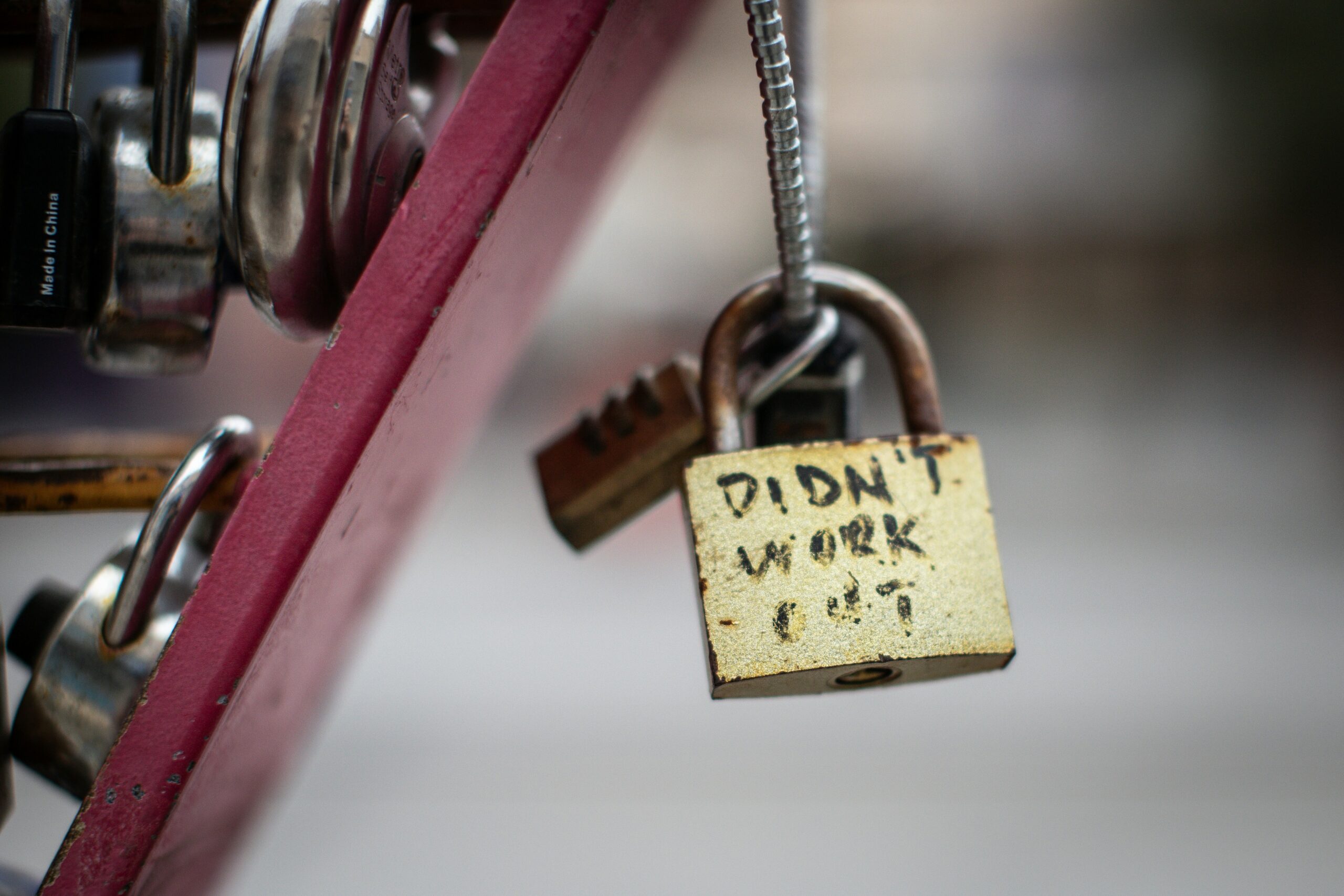So, your relationship just ended. Maybe you saw it coming from a mile away, or maybe it blindsided you like a freight train on a Tuesday afternoon. Either way, you’re sitting here wondering what the heck happens next, right?
Look, I’ve spent over 15 years working with people navigating the messy aftermath of breakups, and here’s what I know for sure: this moment, as terrible as it feels, is actually your chance to rebuild yourself into someone even better.
I’m not going to sugarcoat it with fluffy nonsense about everything happening for a reason (though sometimes it does). Instead, I’m giving you real, practical steps that actually work. Ready? Let’s get you through this.
20 Things To Do After A Breakup To Become A Happier And Healthier You
These aren’t just random suggestions I pulled from thin air. These are strategies I’ve watched transform broken hearts into empowered individuals, time and time again.
1. Allow Yourself To Grieve
Here’s the thing nobody tells you: you’re allowed to fall apart. Seriously.
I remember working with Sarah, a 32-year-old marketing director who came to my office three weeks after her breakup, apologizing for “still being upset.” Three weeks! I looked at her and said, “Honey, you just lost someone you shared your life with. You’re not a robot.”
Breakups trigger genuine loss. Your brain doesn’t distinguish much between a breakup and other major losses. The sadness, anger, confusion, and even that weird relief you might feel? All completely normal.
Give yourself permission to ugly cry. Blast sad music if you need to. Eat ice cream straight from the container at 2 AM. Just don’t set up camp there forever, okay? Feeling your emotions isn’t wallowing; it’s processing. And processing is how you eventually heal.
The alternative? Stuffing everything down until it explodes later, usually at the worst possible moment. Trust me, I’ve seen it happen.
2. Focus On Self-Care
I’m going to be blunt: you probably look like you’ve been through a war right now, and that’s fine for today. But tomorrow, we’re changing that.
Self-care after a breakup isn’t bubble baths and face masks (though those are nice). It’s about meeting your basic needs when your brain is screaming at you to stay in bed forever.
Start simple:
- Shower daily (yes, I have to say this because heartbreak makes hygiene optional)
- Eat actual meals, not just whatever you can grab while crying
- Sleep on a schedule, even when your mind races at 3 AM
- Move your body for at least 20 minutes
When Michael came to see me after his divorce, he’d lost 15 pounds in two weeks, not in a good way. We created a simple routine: smoothie for breakfast, walk at lunch, friend time in the evening. Within a month, he told me he finally felt human again.
Your body and mind are connected. Take care of one, and the other follows. Neglect both, and you’ll stay stuck in this painful loop way longer than necessary.
3. Reconnect With Friends And Family
Remember those people who loved you before your ex existed? Yeah, they’re still there, probably waiting for you to text them back.
Breakups have this sneaky way of making you realize how much time you spent in a relationship bubble. I’ve watched countless clients suddenly remember they had friends they haven’t seen in months (or years, yikes).
Call your best friend. Visit your parents. Show up to that group chat you’ve been ignoring. These people are your lifeline right now, whether you realize it or not.
One of my clients, Jessica, told me she felt “too embarrassed” to reach out to friends after her breakup because she’d been so wrapped up in her relationship. When she finally did? They threw her a “welcome back to life” party. Real friends don’t keep score; they just want you back.
Warning: If reconnecting means dealing with toxic family members or fair-weather friends, skip them. You need support, not additional drama.
4. Exercise Regularly
I know, I know. You’re thinking, “Great, another person telling me to exercise when I can barely get out of bed.” Hear me out, though.
Exercise is basically free therapy with better side effects. Your brain releases endorphins, serotonin, and dopamine when you move. These are literally the same chemicals your brain was getting from your relationship. You’re not replacing your ex with a gym membership; you’re giving your brain the good chemicals it’s suddenly missing.
You don’t need to become a fitness influencer overnight. Start with a 15-minute walk around your neighborhood. Try a YouTube yoga video. Dance badly to your favorite songs in your living room (I do this regularly, and I’m a professional with degrees on my wall :)).
Amanda, one of my therapy clients, started kickboxing after her breakup. She told me, “I pretend the punching bag is my ex’s face, and honestly, it’s the best therapy I’ve ever had.” Whatever works, right?
5. Pursue A New Hobby

Ever notice how breakups suddenly give you a ridiculous amount of free time? Use it.
This is your permission slip to try that thing you’ve been curious about but never had time for. Pottery classes, rock climbing, learning guitar, photography, cooking weird recipes from TikTok… literally anything that sounds even remotely interesting.
The goal isn’t to become an expert. The goal is to prove to yourself that life exists beyond your relationship, and it can actually be pretty fun.
I started learning Italian after my worst breakup in grad school. Did I become fluent? Absolutely not. But those classes gave me something to look forward to every Tuesday and Thursday, and that mattered more than my terrible pronunciation.
New hobbies also come with a bonus: you might meet new people who have zero connection to your past relationship. Fresh starts, fresh faces, fresh conversations that don’t involve analyzing what went wrong.
6. Declutter Your Space
Time for some real talk: that box of your ex’s stuff in your closet? It needs to go. I’m not saying you need to Marie Kondo your entire life overnight, but your physical space matters more than you think.
Every time you see something that reminds you of your ex, your brain gets pulled back into painful memories. It’s like trying to heal a cut while someone keeps picking at the scab.
Here’s your action plan:
- Box up everything that belongs to your ex or reminds you of them
- Remove it from your living space (return it, donate it, or store it at a friend’s place)
- Rearrange your furniture so your space feels different
- Add something new that’s totally yours
One of my favorite client success stories involves Lisa, who completely redecorated her bedroom after her breakup. New paint color, new bedding, plants everywhere, the works. She told me, “Walking into my room doesn’t hurt anymore.
It actually makes me happy now.” Your environment shapes your emotional state. Make it work for you, not against you.
7. Set Personal Goals
Breakups have this weird superpower: they force you to figure out who you are without another person defining you.
Now’s the time to get selfish (in a good way). What do you want? Not what your ex wanted, not what your relationship needed, but what YOU actually want for your life.
Set some goals:
- Career advancement (that promotion you’ve been eyeing?)
- Financial targets (saving for a solo trip or paying off debt)
- Personal development (learning skills, reading more, whatever floats your boat)
- Health milestones (running a 5K, trying a new workout class)
Make them specific, make them yours, and write them down. There’s actual research showing that people who write down their goals are significantly more likely to achieve them.
Marcus came to counseling feeling completely lost after his divorce. We spent a session just mapping out what he wanted for the next year.
Months later, he’d gotten his real estate license, lost 20 pounds, and was genuinely excited about his life again. Goals gave him direction when everything else felt chaotic.
8. Read Self-Help Or Inspirational Books
Before you roll your eyes, books saved my sanity during my toughest relationship struggles.
I’m not talking about those generic “love yourself” books that say the same thing in 300 pages. I mean books that actually teach you something useful about relationships, attachment styles, communication patterns, or personal growth.
Some recommendations that my clients rave about:
- Books about attachment theory help you understand why you pick the partners you do
- Books on boundaries teach you how to protect your peace
- Memoirs from people who’ve survived heartbreak remind you that you’re not alone
Reading does something magical: it gets you out of your own head while simultaneously helping you understand your head better. Plus, it’s way cheaper than therapy (though therapy is still great, FYI).
I remember reading “Attached” by Amir Levine after a particularly confusing breakup. Suddenly, my entire relationship history made sense. Understanding my anxious attachment style didn’t erase the pain, but it gave me a framework for moving forward differently.
9. Practice Gratitude
Okay, I know this sounds like something embroidered on a throw pillow, but gratitude actually rewires your brain. Like, scientifically proven stuff here.
When you’re heartbroken, your brain fixates on everything you lost. Gratitude interrupts that spiral by forcing you to notice what you still have.
Start simple: write down three good things every night before bed. They can be tiny. “My coffee was good today.” “My dog made me laugh.” “I didn’t cry during lunch.” All valid.
I had a client, Priya, who resisted this exercise hard. “What do I have to be grateful for? My relationship just exploded!” But she tried it anyway. Two weeks in, she told me the practice had started shifting how she saw her days. She noticed more good moments because she was actively looking for them.
Your brain is like a spotlight. Whatever you shine it on gets bigger. Choose carefully.
10. Explore Nature
Sometimes the best thing you can do for your broken heart is get the hell out of your apartment and go outside.
Nature has this incredible ability to put your problems in perspective. When you’re standing in front of an ocean or hiking through mountains, your breakup suddenly feels a little less universe-ending.
Science backs this up, by the way. Studies show that spending time in nature reduces cortisol (stress hormone), lowers blood pressure, and improves mood. Mother Nature is basically a free therapist who’s always available.
You don’t need to go on some elaborate camping trip (unless that’s your thing). Try:
- Morning walks in a nearby park
- Beach days where you just sit and watch the waves
- Hiking trails that challenge you physically
- Outdoor coffee dates with friends in green spaces
Jake started trail running after his breakup and told me it was the only time his brain actually quieted down. Something about the physical exertion plus natural surroundings gave him relief he couldn’t find anywhere else.
11. Invest In Your Career Or Education
Here’s what nobody tells you about breakups: they free up a ton of mental energy that was previously spent on relationship maintenance.
Channel that energy into something that benefits the future you. Take that online course you’ve been eyeing. Apply for the job that scared you before. Start the side hustle you always talked about. Go back to school. Learn new software. Build new skills.
Career growth does double duty: it distracts you from heartbreak while actually improving your life. Win-win.
I worked with a woman named Rachel who got dumped and immediately signed up for coding boot camp. Was it partially spite? Maybe. But six months later, she’d switched careers, doubled her salary, and forgotten what’s-his-face’s last name. Heartbreak became her launching pad.
Pro tip: Don’t make massive life decisions in the first month after a breakup (like quitting your job to move to Bali), but absolutely make strategic moves that align with your long-term goals.
12. Travel Or Take A Mini Getaway
Change your scenery, change your perspective. It’s that simple.
You don’t need a huge budget or tons of time for this to work. A weekend road trip to a nearby city counts. Visiting a friend in another state counts. Even a day trip to somewhere you’ve never been counts.
Travel forces you out of the routine that’s currently suffocating you. Plus, new experiences create new neural pathways in your brain, which is fancy science talk for “helps you stop obsessing over your ex.”
Some of my best client breakthroughs happened after they took trips. There’s something about being somewhere new that makes you realize the world is bigger than your broken relationship.
Megan booked a solo trip to Portland three weeks after her divorce. She was terrified to travel alone but did it anyway. She told me later, “I proved to myself that I could be happy by myself, in a new place, with nobody to rely on but me. That changed everything.”
If money’s tight, check out Skyscanner for cheap flights or consider a staycation where you explore your own city like a tourist.
13. Volunteer For A Cause
Want to stop thinking about yourself 24/7? Help someone else.
Volunteering shifts your focus outward and reminds you that other people are struggling too (not in a depressing way, but in a “we’re all in this together” way).
Plus, contributing to something bigger than yourself gives you purpose when your identity feels shaky. You’re not just “the person who got dumped.” You’re the person making a real difference.
Options to consider:
- Animal shelters (animals don’t judge your tear-stained face)
- Food banks (direct impact, immediate results)
- Mentoring programs (sharing your experience helps others)
- Community clean-ups (physical activity + good deed)
David started volunteering at a youth center after his breakup, teaching kids basketball. He told me, “These kids have real problems. My ex leaving me started feeling less catastrophic when I was helping a kid whose parent was in prison.”
Perspective is powerful medicine.
14. Journal Your Thoughts And Emotions

Writing is therapy you don’t have to pay for (though actual therapy is also great, don’t get me wrong).
Journaling helps you process the chaos in your head by getting it out of your head. You can rant, analyze, dream, plan, whatever you need.
There’s no wrong way to journal. Some people write letters they’ll never send. Some people track their daily emotions. Some people just word-vomit onto the page for ten minutes every morning.
I’ve kept a journal since grad school, and looking back at old entries from my worst breakup is wild. I can see exactly how I processed and progressed. The patterns that seemed invisible at the time are obvious now.
Try this: Every night, write about one thing that was hard and one good thing. Track your healing over time. I promise you’ll be amazed at how far you come.
Sites like Penzu offer private online journaling if you prefer typing, or grab a physical notebook if you’re old school like me 🙂
15. Seek Professional Counseling Or Therapy
Let me be really clear about something: going to therapy doesn’t mean you’re broken. It means you’re smart enough to use professional help when you need it.
I’m a therapist, so obviously I’m biased, but I also went to therapy during my own difficult times. We all need objective, trained support sometimes, especially when navigating complicated emotions.
A good therapist helps you:
- Understand your relationship patterns so you don’t repeat them
- Process trauma from the relationship or breakup
- Develop healthy coping strategies beyond ice cream and crying
- Rebuild your self-worth after it took a beating
- Prepare for healthier future relationships
Therapy isn’t about sitting on a couch complaining about your ex (though there’s some of that). It’s about understanding yourself deeply enough to make better choices going forward.
If cost is an issue, check out BetterHelp or Talkspace for more affordable online options. Many therapists also offer sliding scale fees.
16. Rediscover Your Passions
Remember who you were before this relationship? It’s time to reintroduce yourself.
Long-term relationships have a way of blending two people until you forget where you end and they begin. Breakups force you to separate again and remember what lights you up independently.
What did you love doing before? What interests did you put on hold because your partner wasn’t into them? What dreams did you shelve to make the relationship work?
Dust them off. Try them again. See if they still fit.
Christina realized after her breakup that she’d completely stopped painting, something she’d loved since childhood. Her ex thought it was a waste of time. She picked up her brushes again and remembered that creating art made her feel alive. Six months later, she’d had her first gallery showing.
Your passions aren’t selfish indulgences; they’re essential parts of who you are. Reclaim them.
17. Surround Yourself With Positive Influences
This is crucial: not everyone in your life is helping you heal.
Some people (even ones who love you) are toxic during this time. Maybe they keep telling you to “just get over it.” Maybe they bring up your ex constantly. Maybe they encourage unhealthy behaviors like revenge or stalking social media.
Distance yourself from anyone who drags you down, even temporarily. You need cheerleaders right now, not critics.
Seek out friends who:
- Listen without judgment
- Encourage your growth
- Respect your healing timeline
- Make you laugh
- Remind you of your worth
Join online communities focused on healing after breakups. Check out support groups in your area. Find your people.
I had a client, Tom, whose friends kept pressuring him to start dating again when he wasn’t ready. He finally told them, “I appreciate you caring, but I need you to support my timeline, not push yours on me.” Real friends adjusted their approach.
Protect your peace fiercely. You don’t owe anyone access to you right now.
18. Limit Contact With Your Ex
This is probably the hardest advice to follow, but you cannot heal someone you’re still talking to every day.
I know it’s tempting to stay friends. I know you want closure. I know you think “just checking in” is harmless. But every conversation reopens the wound you’re trying to heal.
Go no contact if possible. That means:
- No texting, calling, or messaging
- Unfollow or mute them on social media (don’t torture yourself stalking their posts)
- Delete their number if you don’t trust yourself not to drunk text
- Block them if necessary for your mental health
“But what if we have to stay in touch because of kids/work/shared friends?” Then keep it strictly business. No emotional conversations. No reminiscing. No “how are you really doing?”
Every single client who committed to no contact healed faster than those who didn’t. Every. Single. One.
It sucks. It feels wrong. It feels mean. But you’re not being mean; you’re creating space for healing. There’s a huge difference.
19. Experiment With A New Look Or Style
Here’s a fun one: change something about your appearance that feels fresh and exciting.
I’m not saying you need a dramatic makeover (though if you want to, go for it). But small changes can symbolize bigger internal shifts and boost your confidence when it’s tanking.
Ideas to try:
- New haircut or color (the breakup bangs are a cliché for a reason)
- Different styles of clothing you’ve been curious about
- Experiment with makeup or skincare routines
- Try a new fitness routine that changes your body in ways you like
- Update your glasses or accessories
The point isn’t to change who you are. It’s to signal to yourself (and your brain) that this is a new chapter.
Natalie came to therapy looking exhausted and defeated. I suggested she do something small for herself, appearance-wise. She got highlights she’d always wanted, but her ex hated. The next session, she walked in standing taller, smiling bigger. Did hair color fix her heartbreak? No. But it reminded her she could make choices for herself again.
20. Celebrate Small Wins And Milestones
Healing isn’t linear, and you need to acknowledge every tiny step forward, no matter how small it seems.
Made it through a whole day without crying? That’s a win. Went to dinner with friends and actually laughed? Win. Got through your ex’s birthday without texting them? Huge win.
Track your progress. Celebrate it. Reward yourself for it.
I tell my clients to keep a “wins list” where they write down every accomplishment, no matter how minor it feels. On bad days (and there will be bad days), pull out that list and remind yourself how far you’ve come.
Recovery isn’t about never having bad moments. It’s about the bad moments getting shorter and further apart until one day you realize you’re actually okay again.
Treat yourself kindly during this process. You’re doing hard work. You deserve credit for showing up every day and trying.
Final Note On Things To Do After A Breakup
Look, I’m not going to lie to you and say this will be easy. Breakups suck. Period. Every single person I’ve worked with who committed to healing came out the other side stronger, clearer, and more authentically themselves.
You’re not broken. You’re breaking open. There’s a difference.
The strategies in this article work, but only if you actually do them. Reading about self-care while you rot in bed won’t change anything. Pick one thing from this list, just one, and do it today. Then pick another tomorrow.
Small, consistent actions compound into massive transformation over time. Trust the process. Trust yourself. You’re going to make it through this.
And hey, six months from now, when you’re living your best life, remember how you felt today. That perspective will be your superpower.
You’ve got this. Now go do the work.
Pin this for later!







